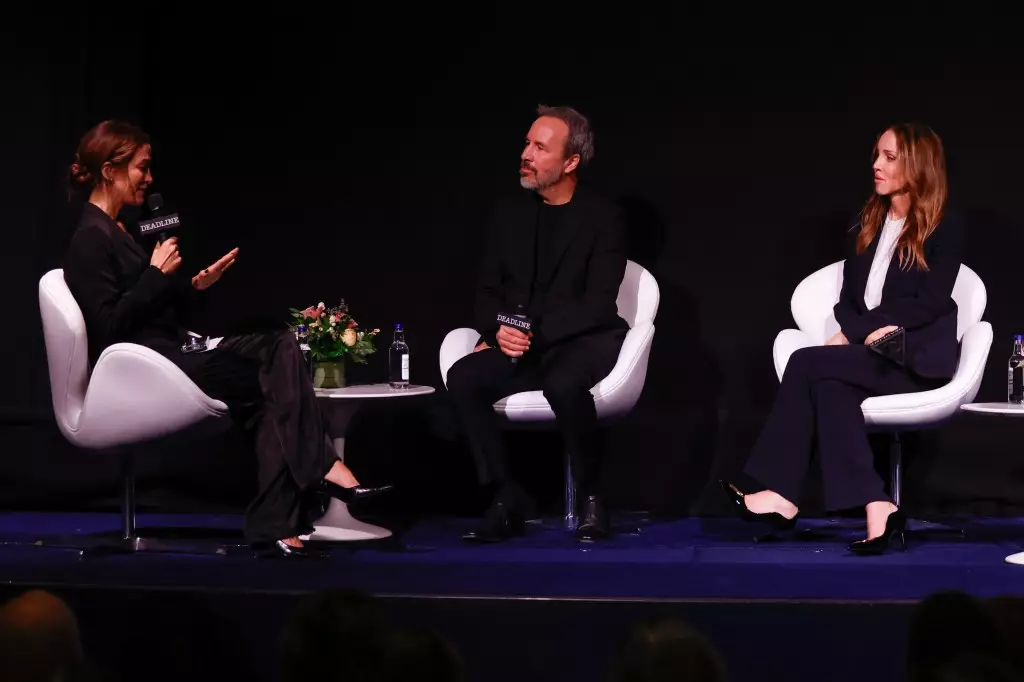In a recent panel discussion at Contenders London, director Denis Villeneuve, alongside producers Mary Parent and Tanya Lapointe, shared intriguing insights about their acclaimed project, *Dune: Part Two*. As they discussed the creative journey behind this significant cinematic work, audiences were offered an in-depth look into how Villeneuve’s interpretation remains true to Frank Herbert’s profound narrative. Villeneuve emphasized his commitment to Herbert’s cautionary vision, which warns against the perils of charismatic leadership and the dangerous interplay between religion and politics. By aligning the story with these timeless themes, the film not only captivates viewers but also prompts them to engage critically with the implicit social commentary woven throughout.
The Journey of Paul Atreides
Central to *Dune: Part Two* is the character of Paul Atreides, portrayed by Timothée Chalamet, who finds himself caught in a tumultuous struggle for revenge against those who dismantled his family. The film paints a stark portrayal of betrayal and the quest for justice, set against the backdrop of a richly imagined universe. However, Villeneuve and Parent both highlighted that interwoven with this epic narrative of vengeance is a deeply personal love story between Paul and Chani, played by Zendaya. This relationship serves as the emotional core of the film, illustrating how love can flourish even in the most hostile and chaotic environments. Villeneuve eloquently remarked on how the film encapsulates the tragedy of youth navigating a world fraught with danger—a universal experience that resonates strongly with the audience.
Mary Parent articulated the prescience of Herbert’s writings, noting that the themes explored in *Dune*, although conceived in the 1960s, echo the most pressing moral dilemmas of our contemporary world. Issues such as power dynamics, environmental stewardship, and the ethical treatment of one another are as relevant now as they were decades ago. Her reflections insist that Herbert’s narrative transcends mere science fiction, positioning it as a critical social commentary that urges humanity to confront its foibles. These timeless themes invite viewers not only to experience a thrilling cinematic adventure but to reflect on their reality—balancing technological advancement with the moral imperatives inherent in our collective humanity.
Amid the personal narratives, *Dune: Part Two* also delves profoundly into the nature of power. Tanya Lapointe asserted that the film explores how power is wielded—showcasing a long-term strategic vision rather than superficial maneuvers. The character of the Bene Gesserit vividly illustrates this complexity, demonstrating that real power does not simply stem from direct confrontation but is often exerted over generations. Villeneuve’s portrayal of female characters, particularly their agency and distinct motivations, enriches the narrative. Characters like Lady Jessica embody not only strength but also conflicting desires, showcasing the intricate interdependencies between gender-based power dynamics and individual ambition.
As discussions turned towards the possibility of a third installment, Villeneuve playfully speculated on themes of war that may arise should the narrative continue. His reflections on Paul Atreides’ potential journey highlight the moral complexities that accompany warfare—not just for revenge, but for the protection of loved ones and ideological beliefs. This narrative arc could serve as a powerful exploration of the ethics of conflict, further expanding the thematic depth of the series. Villeneuve’s comments underscore an understanding that great narratives are often cyclical, reminding us of the inherent human struggle against external and internal forces that seek to shape our destinies.
*Dune: Part Two* manifests as a masterful convergence of personal and societal themes—balancing the quest for love with an astute critique of power dynamics. Through the lens of Denis Villeneuve and his team’s visionary approach, viewers are encouraged to not only engage with the spectacular visuals and gripping plot but to reflect upon the implications within their own lives. The film transcends mere entertainment, inviting audiences into a dialogue about the human condition, setting the stage for deeper reflections and conversations long after the credits roll. As *Dune* continues to unfold, it reinforces the fact that great storytelling is deeply rooted in our shared experiences—something that resonates across generations and cultures.


Leave a Reply